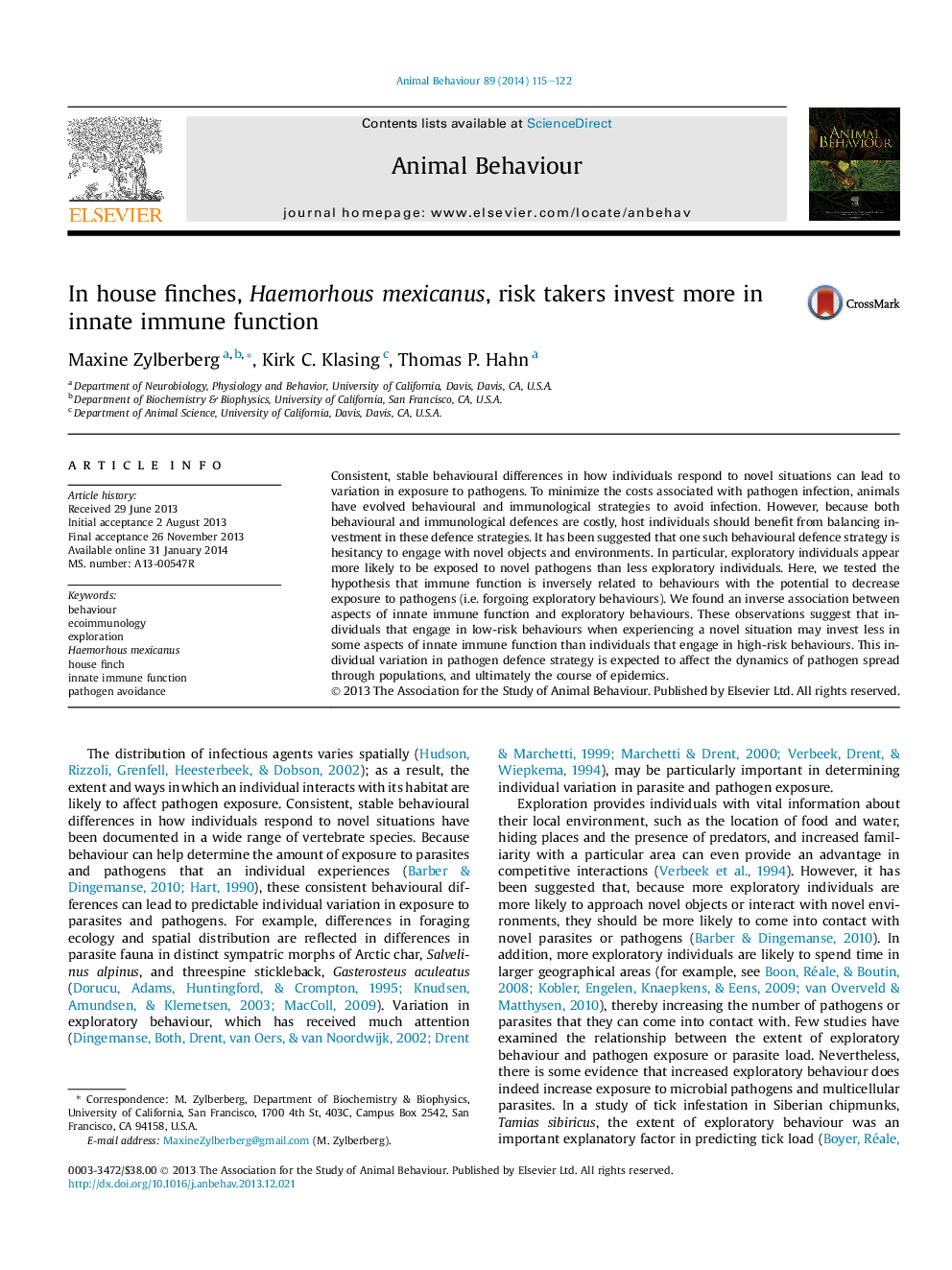| Article ID | Journal | Published Year | Pages | File Type |
|---|---|---|---|---|
| 2416455 | Animal Behaviour | 2014 | 8 Pages |
•Both behavioural and immunological pathogen defences are costly.•We examined whether house finches balance investment in these defence strategies.•Exploratory behaviours are thought to increase pathogen exposure.•House finches showed large variation in exploratory behaviours.•Increased exploration was correlated with increased investment in innate immune function.
Consistent, stable behavioural differences in how individuals respond to novel situations can lead to variation in exposure to pathogens. To minimize the costs associated with pathogen infection, animals have evolved behavioural and immunological strategies to avoid infection. However, because both behavioural and immunological defences are costly, host individuals should benefit from balancing investment in these defence strategies. It has been suggested that one such behavioural defence strategy is hesitancy to engage with novel objects and environments. In particular, exploratory individuals appear more likely to be exposed to novel pathogens than less exploratory individuals. Here, we tested the hypothesis that immune function is inversely related to behaviours with the potential to decrease exposure to pathogens (i.e. forgoing exploratory behaviours). We found an inverse association between aspects of innate immune function and exploratory behaviours. These observations suggest that individuals that engage in low-risk behaviours when experiencing a novel situation may invest less in some aspects of innate immune function than individuals that engage in high-risk behaviours. This individual variation in pathogen defence strategy is expected to affect the dynamics of pathogen spread through populations, and ultimately the course of epidemics.
